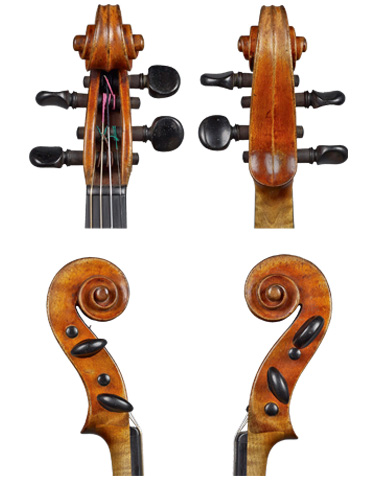
Dmitry Gindin: Expert and consultant in fine stringed instruments
Enrico Rocca and Eugenio PragaIt would have been logical for Enrico to follow his father into violin making from a young age, but Giuseppe's ill fortune continued to plague his son for some time after his death; Enrico held off establishing himself as a violin maker in Genoa for at least the next 15 years. Bianchi returned to Genoa around 1868 and was training Eugenio Praga (1847-1901). Meanwhile, other lesser-known makers, such as Ludovico Rastelli and Erminio Montefiori (1841-1904), also worked in the town. In such a competitive atmosphere, Enrico was clearly unable to capitalise on Giuseppe's reputation. With great talent but no funds, and still in his teens, he could not maintain a workshop. Hence, by 1865 we find him engaged in other vocations, living away from his stepmother and working as a day labourer, carpenter and boatman in Genoa's dockyards. Though born in Turin, Enrico saw himself as Genoese, having lived there from his mid-teens. He married in the early 1870s and his two children were born in 1873 and 1874. He continued supporting his family as a carpenter until the late 1870s, when his fortunes gradually began to change. Around 1877 Bianchi left Genoa once again, moving to Nice, where he died a few years later. His pupil, Praga, himself a son of a wealthy engineer, then took over Bianchi's position as the town's premier restorer and violin maker. Following the death of Rastelli in 1878, Enrico must have seen an opportunity to restart his violin-making career, and in 1880 he opened his first premises. |

|
